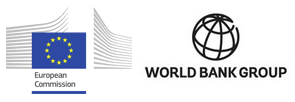The European Commission (EC) and the World Bank have provided policy guidance for leveraging the role of science, technology and innovation (STI) in implementing the 2030 Agenda for Sustainable Development and closing the digital divide.
A report from the EC considers ways for EU STI policy to contribute to the achievement of the Sustainable Development Goals (SDGs), while the World Bank's 2016 World Development Report discusses broader economic reforms, such as improving the business climate, investing in education and health, and promoting good governance, which it says should complement technology investments to enable countries to reap "digital dividends" in the form of faster growth, more jobs, and better services.
 13 January 2016: The European Commission (EC) and the World Bank have provided policy guidance for leveraging the role of science, technology and innovation (STI) in implementing the 2030 Agenda for Sustainable Development and closing the digital divide. A report from the EC considers ways for EU STI policy to contribute to the achievement of the Sustainable Development Goals (SDGs), while the World Bank’s 2016 World Development Report discusses broader economic reforms, such as improving the business climate, investing in education and health, and promoting good governance, which it says should complement technology investments to enable countries to reap “digital dividends” in the form of faster growth, more jobs, and better services.
13 January 2016: The European Commission (EC) and the World Bank have provided policy guidance for leveraging the role of science, technology and innovation (STI) in implementing the 2030 Agenda for Sustainable Development and closing the digital divide. A report from the EC considers ways for EU STI policy to contribute to the achievement of the Sustainable Development Goals (SDGs), while the World Bank’s 2016 World Development Report discusses broader economic reforms, such as improving the business climate, investing in education and health, and promoting good governance, which it says should complement technology investments to enable countries to reap “digital dividends” in the form of faster growth, more jobs, and better services.
The EC publication, titled ‘The Role of Science, Technology and Innovation Policies to Foster the Implementation of the Sustainable Development Goals (SDGs),’ presents the conclusions of an independent expert group on the ‘Follow-up to Rio+20, notably the SDGs,’ which the EC established to provide advice on the role of STI in implementing sustainable development. The report advances proposals to better align the EU’s Horizon 2020 tracking system with the SDGs. It also recommends three key avenues for change: reorienting mindsets and behaviors towards sustainable development, and refocusing from technology transfer to building innovation capacity; strengthening partnerships, enhancing engagement with developing countries in existing EU instruments, and engaging all stakeholders (especially the private sector); and addressing causes of implementation gaps, ensuring domestic integration of the SDGs in/with STI, improving policy coherence, and setting up monitoring, evaluation and assessments of STI for sustainable development.
The World Development Report, titled ‘Digital Dividends,’ suggests closing the digital divide by making the internet universal, affordable, open, and safe. It also proposes “analog complements” to digital investments: strengthening regulations that ensure competition among business, adapting workers’ skills to the demands of the new economy, and fostering accountable institutions. Suggested measures include: investing in basic infrastructure; reducing the costs of doing business; lowering trade barriers; facilitating entry of start-ups; strengthening competition authorities; and facilitating competition across digital platforms. In addition, the authors note, while basic literacy remains essential for children, teaching advanced cognitive and critical thinking skills and foundational training in advanced, technical ICT systems will be essential and will influence career choices. [Publication: The Role of Science, Technology and Innovation Policies to Foster the Implementation of the Sustainable Development Goals (SDGs)] [Publication: World Development Report 2016 (Overview)]